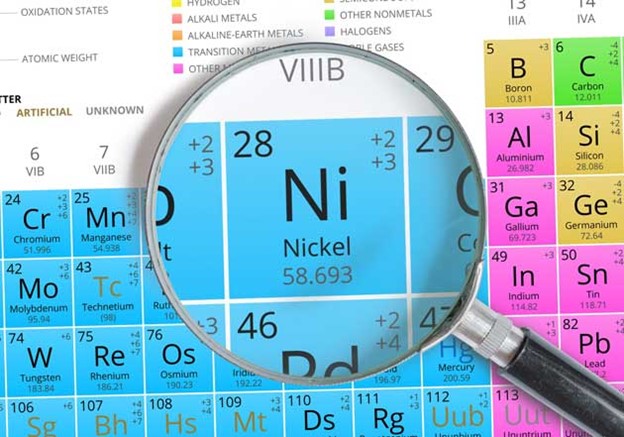EXPLORING NICKEL AND ITS USE IN METAL ALLOYS
- October 10, 2022
- Posted by: vAchESpAVe388ema5hetray8
- Category: BSW blog EN

We take an in-depth look at the element and why it proves so useful in producing high-quality alloys
All
of the metal alloys that are supplied by BSW Metals have nickel as a
key component part. This ranges from commercially pure nickel,
through INCONEL, INCOLOY and MONEL alloys,
which each have a difference percentage of nickel in their makeup.
The chemical element of nickel is both hard and ductile, and its also naturally corrosion resistant, which are key reasons why it is popular for use in metal alloys. Nickel has been used for many hundreds of years, tracing back as far as 3500 BCE when it was used in its natural meteoric nickel-iron alloy state. It was then isolated and classified as an element in 1751.
Nowadays, a large percentage of the world’s production of nickel is for use in nickel-steel and stainless steel, as well as other common alloys and superalloys, including INCONEL and INCOLOY. To create these perfectly balanced superalloys, nickel is carefully blended with other choice elements to both enhance and expand upon its properties. The result is a range of materials that are highly resistant to many forms of corrosion, strong, easy to work with and capable of use in high-temperature environments.
COMMERCIALLY PURE NICKEL
Commercially pure nickel grades have a minimum of 99% nickel in their composition. They make an excellent material that is highly resistant to reducing chemicals and caustic alloys, has good electrical and thermal conductivity, and is both strong and ductile. BSW Metals offers both Nickel 200 and Nickel 201, which are similar, but Nickel 201 has less carbon.
Nickel 200 is used in a wide range of fields, such as aerospace and chemical shipping due to its high corrosion resistance. Nickel 201 is better suited in situations where temperatures will rise above 315°C due to its lower carbon content. They are also often dual certified to bring together the strength of Nickel 200 and the compositional controls of Nickel 201.
NICKEL ALLOYS
While commercially pure nickel has a lot of essential uses across a wide range of industries, it can be expensive, but also it cannot offer the benefits of some superalloys that introduce a blend of other elements to add more attractive properties.
In the oil and gas industry, for example, there are distinct advantages to using metal alloys over pure metal. INCONEL alloy 625, for example, has a minimum nickel content of 58% as well as high levels of both chromium and molybdenum, which all work together to offer outstanding corrosion resistance, particularly high strength and a wide temperature operating range. As such, the material is one of the best superalloys available, and it is employed across a whole range of industries such as aerospace, automobile, oil extraction, oil refining, marine, waste treatment, and the pulp and paper industry.
INCOLOY alloys have less nickel, which can make them a little cheaper for cost-effective projects. However, they still have a good proportion of nickel to benefit from its properties. INCOLOY alloy 825 blends 38-46% nickel with a minimum 22% iron, plus chromium and molybdenum, to produce a significant material for environments where stress cracking or general corrosion is a factor.
To see all of our nickel alloys and commercially pure nickel products, please visit our products page. To discuss your requirements, contact us.



